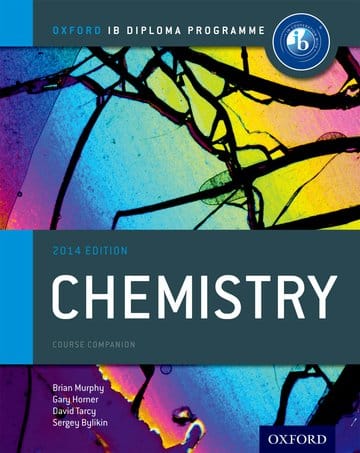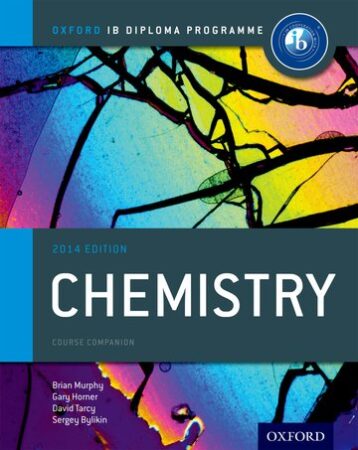
IB chemistry standard level
IB Chemistry Standard Level Syllabus and Assessment
If you are preparing for the IB chemistry standard level examination, you must be aware of the course requirements. Read this article to understand the Syllabus and Assessment of the subject. In addition, we will provide you with past year papers to help you prepare for the exams. You can also download the IB chemistry syllabus in pdf format. After you have read the syllabus, you should know what to expect on paper three.
Course requirements
The IB Chemistry SL course is an advanced college-level chemistry course. The course covers the concepts of physical, inorganic, organic, and analytical chemistry, as well as medicinal chemistry. Students who complete this course are prepared to take the IB Chemistry Standard Level exam in May. It requires a year-long course of study. For more information on course requirements, see the syllabus for the individual course.
Students will also complete a set of laboratory experiments and an examination. Students will be assessed on their ability to design, plan, and conduct experiments. They will be required to analyze and interpret results and to draw conclusions about the findings. As part of the SL course, participants are required to complete an interdisciplinary group science project as well as an individual scientific investigation. For this, students must obtain the necessary equipment and conduct the experiment.
Syllabus
The IB chemistry standard level syllabus is divided into three sections. The first part of the syllabus covers topics relating to the standard level of Chemistry. The second part covers topics that are more advanced. The standard level syllabus also requires students to learn more about the elements. There are three main types of IB chemistry exams: SL, HL, and the IB Diploma. All three tests require students to know the principles of chemistry.
A student will need to complete the assigned homework. However, extra help is available after school. During the semester, students will undertake a rigorous laboratory experience. They will design individual experiments and report their findings. These experiments make up the internal assessment portion of the IB chemistry grade, which accounts for 24% of the overall score. A student should be aware of the syllabus and how it relates to their future plans. It is important to note that the syllabus for the IB chemistry standard level exam is not the same across all schools.
Assessment
There are two main parts of the IB chemistry curriculum, the IB chemistry standard level and the assessment of the Individual Scientific Investigation (ISI). The IB has specified the different tasks that students will be expected to complete in the course. The IAI is an assessment component that accounts for 20 percent of the final mark. The assessment includes five criteria, each worth up to four marks, including the Design, Exploration, Analysis, and Evaluation. In addition, the IB has made the internal assessment component graded out of 20 marks. Students’ work is moderated to ensure a common standard.
The IA is a major part of the IB chemistry course, requiring students to use creative thinking and independent thinking. A well-written IA can lead to a high mark, so it is important to choose a topic that is personally relevant. It is also important to keep the tone of the text personal, so it doesn’t feel robotic or impersonal. The IB also requires that the student follow the descriptors outlined on the IB chem page.
Past year papers
If you want to learn more about the IB chemistry standard level, the best way is to find past year papers. The IBO has past papers for every standard level of the course. These past papers can be found on their website. You can download all three exams from May 2015 to November 2021. You can also purchase mark schemes, which will allow you to compare your answer with the correct one. The IBO encourages its students to join the alumni network so that they can connect with their peers.
For students to prepare for the IB chemistry exam, past year papers are an excellent way to boost their concept level. The IBO also releases a list of key words. You can use these to find out which questions are commonly asked. The past year papers will help you improve your score on the exam. There is also a study guide available for teachers on the programme resource centre. However, you should keep in mind that you cannot use past year papers as your only resource.
Coursework
The IB Chemistry course gives students in-depth study of chemistry by connecting it to other subjects and real-world experiences. The course culminates in a group activity, external assessment, and written report. It is taught over two years, typically in a student’s senior year. There are four different IB Chemistry course options: Standard Level, Higher Level, and International Baccalaureate (IB) Diploma Programme. Each option consists of 15 hours of study, and students must choose one option to focus on. In addition to course notes, students are required to complete homework, presentations, and online assessments.
The IB Chemistry SL syllabus covers basic concepts in physical, inorganic, and organic chemistry, as well as analytical physics. Students will also be exposed to NMR and mass spectrometry, as well as a deeper study of medicinal chemistry. Students will also be required to complete a Group IV Project and complete an internal assessment. The IB exam is held in May. However, IB Chemistry SL students must be capable of understanding the materials used in the course.
Homework assignments
If you’re wondering what to do for IB chemistry standard level homework assignments, you’ve come to the right place. The course is highly descriptive, so homework assignments aren’t always easy to tackle, but they’re worth the effort! Here are some tips to make the process easier. Start by reviewing your textbook every night! Here are some helpful tips for IB chemistry standard level homework assignments. And don’t forget to review your IB data booklet.
The IB chemistry standard level homework assignments are generally written by the teacher and are graded based on the content that is covered during the class. This way, you’ll know if you have missed an assignment. Don’t worry – you’ll know exactly what to expect in advance. Your teacher will send you a reminder a week ahead of time. By completing your assignments on time, you’ll have less pressure on the final exam.


Comments (0)